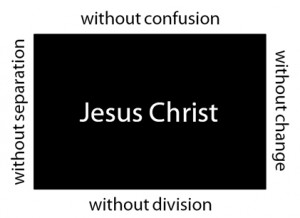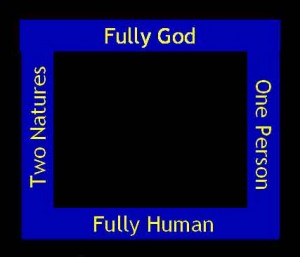I appreciate the answer given by Dr. James White below:
I just wrote this Twishort response to a tweet by @PoliClark where, tagging Dan Savage as well, he wrote, “hi James- can you give me feedback? My neighbor was working today (sabbath) so I murdered him. This is correct?” So here was my reply:
@PoliClark Dear Clark, thanks for writing. As a good citizen, I’ve turned your admission of the murder of your neighbor over to the authorities, but my response should give you something helpful to do during the booking process. I am so sorry you relied upon Internet Bible “experts” for your information. It is such a common thing today for people who have not even bothered to read and understand the text, even in a modern English translation (let alone consult the original Hebrew!) to pretend that reading what one person quotes from another person who quotes from another person who actually only saw it on West Wing back in the late 90s is sufficient basis for their actions or opinions. Amazing the shallow, surface-level argumentation that some people will use! But in reference to your question (you did ask if what you did was correct), no, it was not.
First, you obviously have no zeal for the Lord or His law, so you would have no basis upon which to be acting as the magistrate of a nation that no longer exists. The Israelite theocracy was brought into existence first and foremost to be the vehicle through which the Messiah would come who, by His self-giving, sacrificial death on the cross, would provide full and perfect redemption for all who would turn in true repentance and faith to Him. That nation ceased to exist as a nation in AD 70, so you were about 1950 years off in your dating there.
Secondly, you seem to be laboring under the misconception that modern Christians are free to pick and choose from among the Mosaic laws what they will obey and what they won’t. The process of examination of the purpose and applicability of the Mosaic laws is a difficult one to be sure. It requires examination of the text in light of the entirety of biblical revelation, a knowledge of the original context, historical backgrounds, etc.
Indeed, while it is not my scholarly focus (I have only taught basic Hebrew and Hebrew exegesis on the graduate level in the past), I have invested a great deal of time recently on the topic, as I am preaching through the very Holiness Code I surmise you are referring to. Assuming you have neglected such a study, and not availed yourself of those who have done so with an eye first and foremost to honoring God and His Word (your imminent incarceration being good evidence of this), I will lay out a basic answer to your question.
1) A Sabbath breaker under the ancient Israelite theocracy would be executed upon examination by the governing authorities, not by individual Israelites. Mistake #1.
2) There is no evidence the NT apostles viewed this law as being applicable outside of national Israel, which no longer exists, and hence it would be inappropriate to seek its institution, let alone its enactment and resultant punishment. Mistake #2.
3) If your neighbor had never entered into covenant with the God of Israel to keep the Sabbath day, well…mistake #3, big time.
4) It might be helpful to consider the abiding moral element of the law as it relates to honoring God with your time and observing a cessation of work and labor so as to focus upon His worship, but your neighbor won’t be able to do that anymore due to your action. Mistake #4.
Now, Clark, after your conviction and incarceration, I would direct you to consider the differences between the laws given in the Bible specifically for national Israel, those that were ceremonial in nature, those that pointed to a coming fulfillment in Christ, and those that by their very nature embodied universal moral principles—those mainly being those that derive from God’s act of creation. So, laws that reflect God creating man male and female would be creation ordinances since they reflect God’s creative purposes; those relating specifically to such things as styles of dress that were connected to the pagan worship practices of the nations around Israel while no longer being specifically applicable would still communicate the need to not engage in the behaviors of those pagans.
For example, the single prohibition against a tattoo (Lev. 19:28—though we are actually not certain whether ????????? means tattoo in the modern sense of permanent, injected pigment) is actually found in a passage about doing things “for the dead.” The Deuteronomistic parallel (14:1) further shows that it is not the actual tattoo that is in view, as the parallel refers to “shaving the forehead” as the parallel to ?????????. The point is that the pagan religions around Israel contained beliefs relating to the dead—either provisions for honoring the dead, or, fear of the curses of the dead. As the people of God, the Israelites were to realize that the dead had no power over them, hence, they were not to alter their appearances to either honor the dead, or (as I think more likely), to hide from their curses. And that principle would continue to this day: as God’s people, we are not to concern ourselves about the activities of the dead: God is in control of our lives, not the dead.
So can a Christian have a tattoo?
That would, as I see if, fall under the over-arching concept of Romans 14: that as a believer I am to please my Lord and do all that I do under His Lordship. As such, if I desire to glorify God with a piece of artwork that reminds me of my duties to Him, and I do not do it to sinfully attract attention to myself, then I see no problem with it at all.
Now, before I close off (I mean, booking only takes so long), let me take a wild guess and assume that your actions were motivated by the general assertion that the Levitical law is no longer relevant primarily in the area of sexual ethics and behavior. You might even suggest that the prohibition against homosexuality found in Lev. 18:22 and Lev. 20:13 is only in reference to the pagan practices of the peoples around Israel, an issue I myself raised above. I have much to say on this topic, but will be brief for now, if you don’t mind.
There is no question of the sexual immorality of the Assyrian and Mesopotamian religions of the time period immediately preceding the Exodus. And unless you are ready to proclaim all sexual practices moral, even you would have to admit the truth of this statement. So are we just picking and choosing when we cite Lev. 18:22 and Lev. 20:13 regarding homosexuality? No, we are not. Lots of reasons, let me give you two and let you go with the police.
1) When Moses gives the series of sexual sin laws in Lev. 18 there follows a lengthy discussion of how the peoples before Israel had violated these laws *and as a result* the land had vomited them out. Their actions had defiled themselves, and the land. Remember, theses are people to whom the Mosaic law was never given. Hence, these laws are binding outside the national boundaries of Israel, they are creation ordinances that reflect God’s creation order.
2) This is confirmed in Paul’s usage of these laws in Romans 1 and 1 Cor. 6:9-11, where he even joins two terms from Lev. 20:13, ??????? ??????, into a single term to refer to homosexuals. Clearly, then, the Apostle of Christ understood these laws as continuing in their abiding validity, and that is why Christians have followed in their footsteps. I am so sorry you did not ask for this information before acting as you did, but hopefully now you will be able to be a model inmate!

 Matthew 24:36 says, “But concerning that day and hour no one knows, not even the angels of heaven, nor the Son, but the Father only.”
Matthew 24:36 says, “But concerning that day and hour no one knows, not even the angels of heaven, nor the Son, but the Father only.” These are intentionally very precise theological statements. It is vitally important we get this right. Heresy awaits all who would veer from this safe biblical position. At Chalcedon it was affirmed that Christ was “perfect/complete in Godhood also perfect/complete in manhood, truly God and truly man.”
These are intentionally very precise theological statements. It is vitally important we get this right. Heresy awaits all who would veer from this safe biblical position. At Chalcedon it was affirmed that Christ was “perfect/complete in Godhood also perfect/complete in manhood, truly God and truly man.” In the Incarnation, the second person of the Godhead became a man. Colossians 2:9 says, “For in him the whole fullness of deity dwells bodily.”
In the Incarnation, the second person of the Godhead became a man. Colossians 2:9 says, “For in him the whole fullness of deity dwells bodily.”